As part of their learning around the New Zealand General Election, Room 2 crafted their very own political parties, and participated in a mock election.
Working in small groups, the first step was to come up with a catchy name, slogan and logo. Baylee and Tegan opted for ‘The Eco-Friendly Party’ with the slogan ‘Make New Zealand a Better Place’. Lucy and Paige decided to name their party ‘ET is Powerful’ with the slogan ‘Work Hard, Make a Difference’.
As ideas flowed, each party committed to three policies which would become the focal point of their campaigns. Stanley and Paddy decided to build their PCP Party on the promise of improved sports fields, safety around roads and protection of native plant species.
The mock election was an opportunity to learn about, and use persuasive language techniques. Each group planned and crafted a text including rhetorical questions, imperatives and hyperboles. These were published using a newspaper template on the graphic designing tool Canva. Presentations were designed with close attention to contrast, alignment, and spacing.
A rhetorical question is a question that doesn’t need to be answered. I used a rhetorical question in my writing so that I could make a point.
Imperative verbs are bossy verbs. They tell you to do something, like ‘vote for us’!
A hyperbole is an exaggeration. They can be used to be persuasive.
Each party presented their published work to the rest of the class, in an attempt to convince their peers that they were the best candidates.
Then it was time for voting. Individual ballots were collected and counted, revealing the percentage of support earned by each party. Samuel and Te Ramaroa’s ‘Green Party’ earned 39% of the vote, giving them the option of forming a coalition government with one of four other parties. They chose to ally with Lilly and Amber and their WWYDWU Party (What Would You Do Without Us?). Meanwhile, the remaining parties who earned over 5% of the votes assumed the role of the opposition in the mock parliament. Next steps will be using this knowledge and learning to participate in the Te Mihi elections.
MMP stands for Mixed Member Proportional. To have a seat in parliament a party needs 5% of the votes. To govern alone a party would need over 50% of the votes.
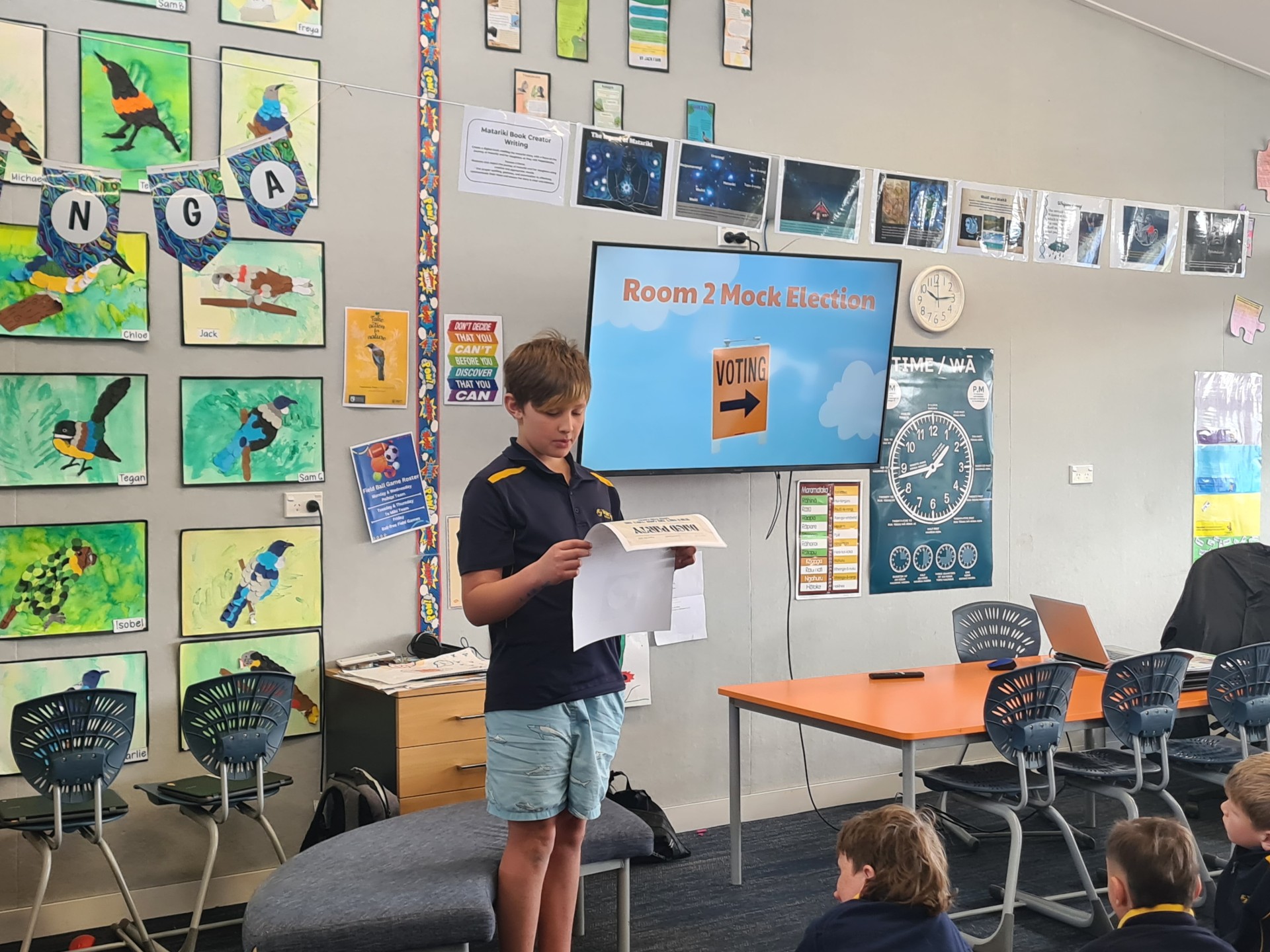
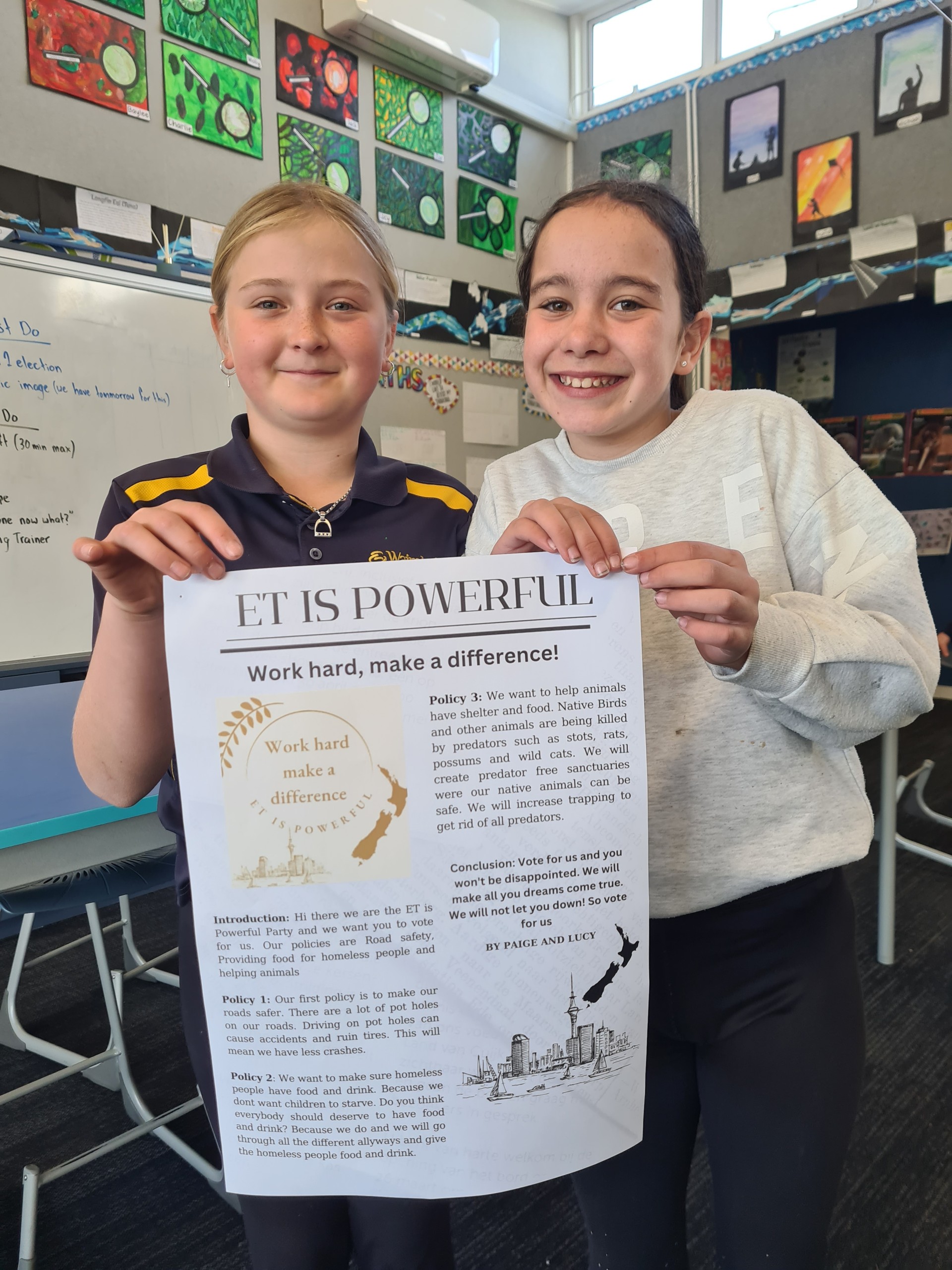
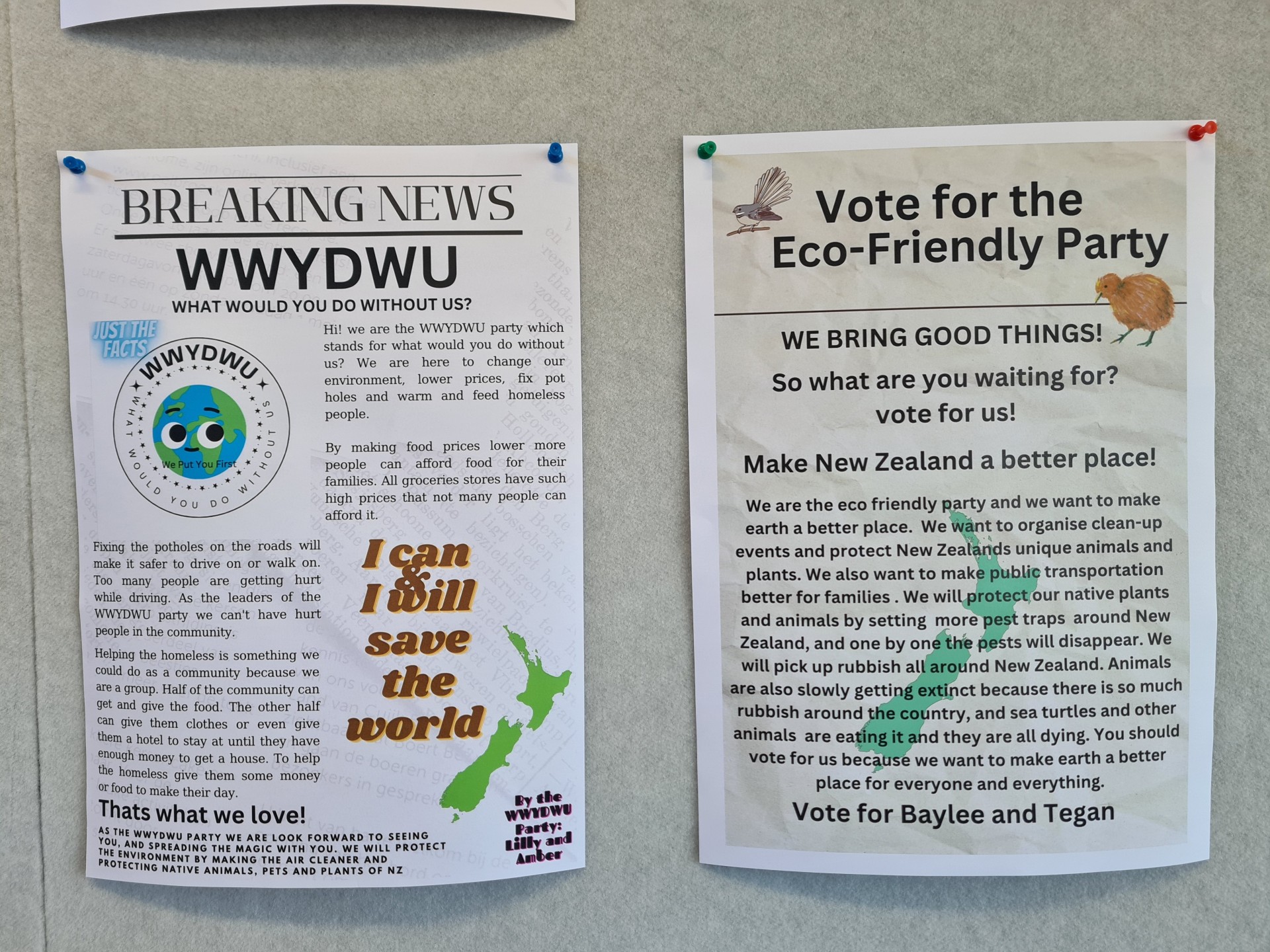
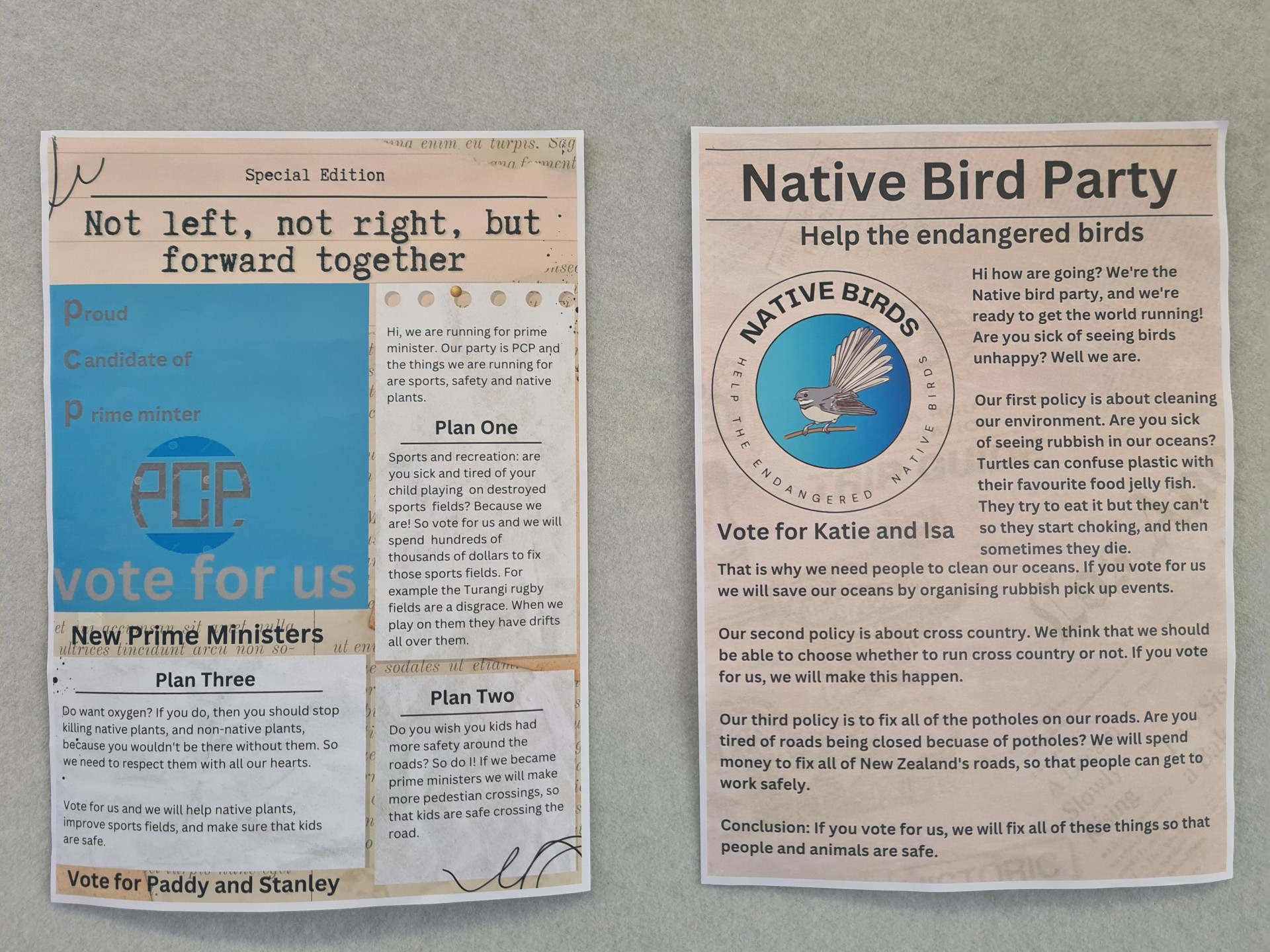
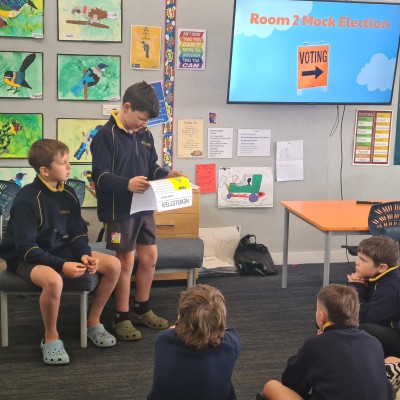
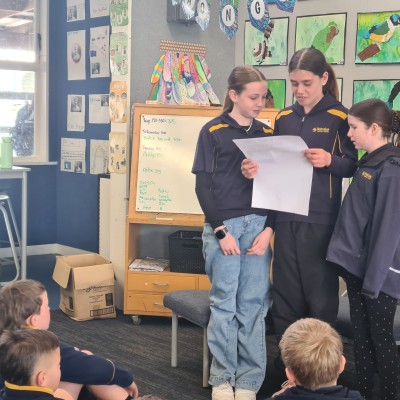
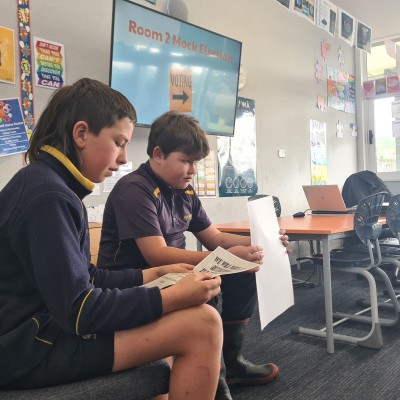
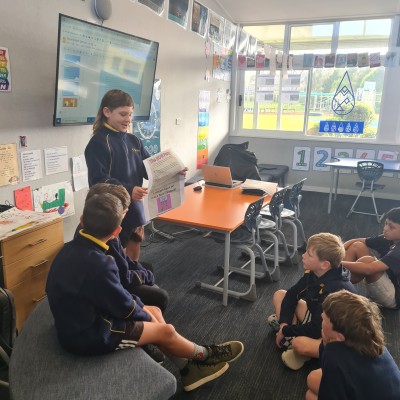
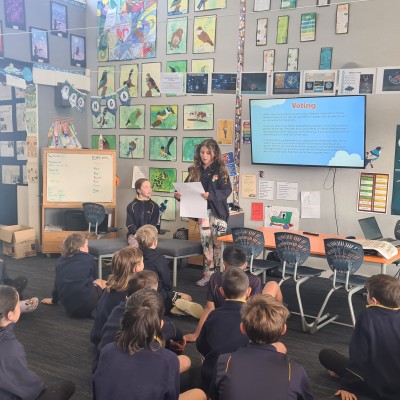
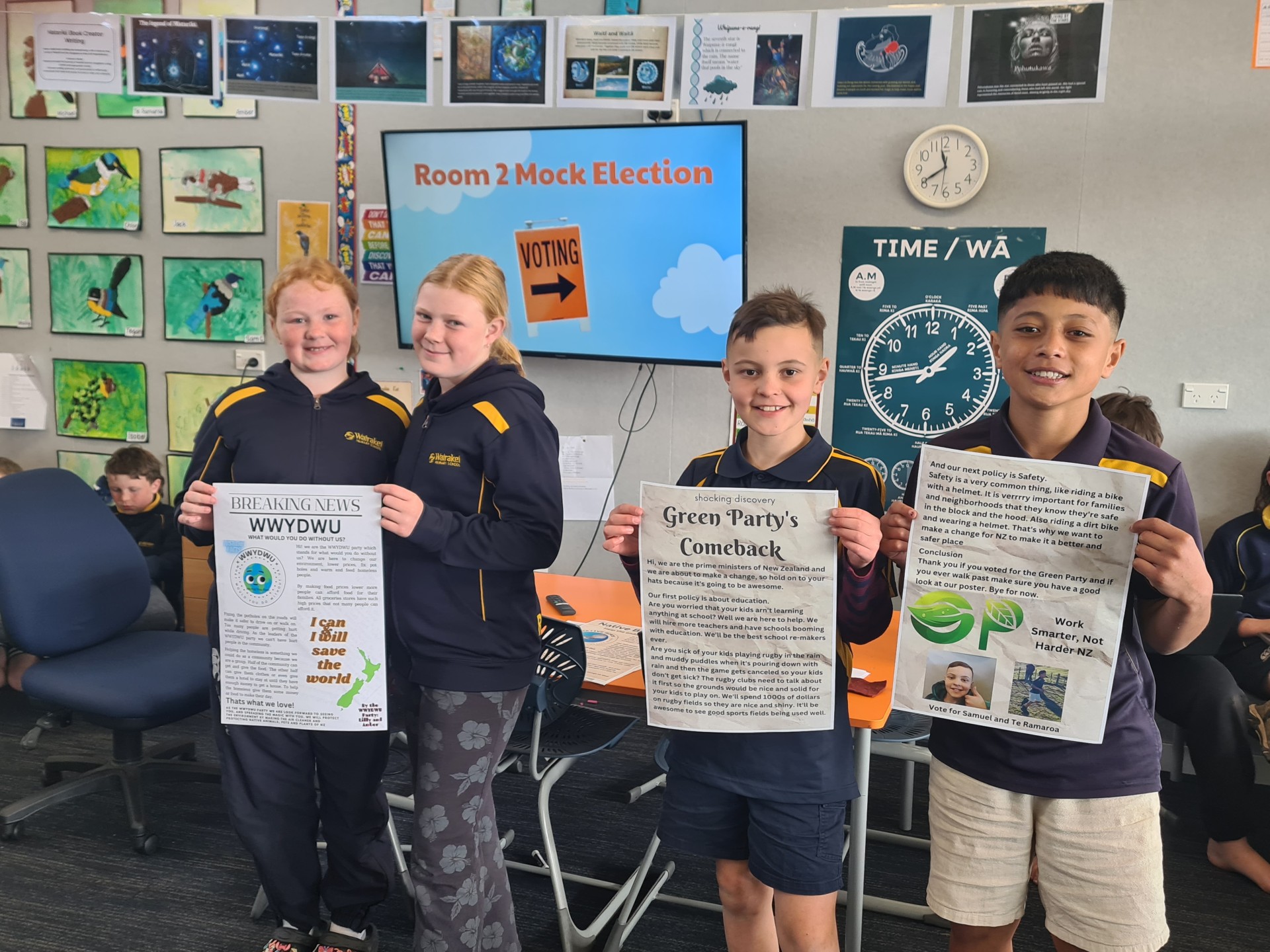

Comments
No one has commented on this post yet.